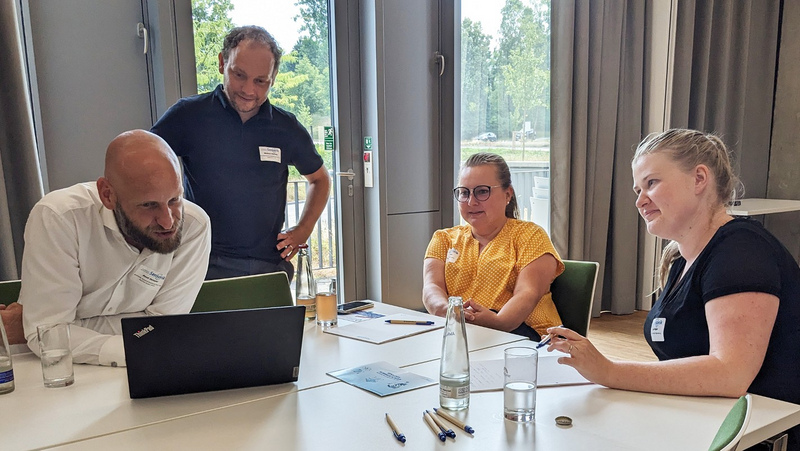Human-machine interaction is becoming an increasingly important part of our everyday working lives, but dealing with the new counterpart is a skill that needs to be learned. Skillful prompt engineering can improve the performance and reliability of AI language models. What strategies would you use to create effective prompts? How could you use AI language models in your work environment? What specific requirements do you have? The Bavarian Sensor Network addressed these questions in mid-July in the transform-DiaLog "Future Skills" with Dr. Marco Maier, CTO of TAWNY (Emotion AI, Munich), who has been active in theory and practice for many years.
Dr. Marco Maier gave an outline of the development of these models up to the large language models and demystified the "intelligence" of the machine to a certain extent: ultimately, it only makes predictions based on the probability of word sequences. Plug-ins that add functionalities to the language model are already available for the latest ChatGPT model, which still has potential, especially in a business context or for specific requirements. Foundation models, which are considered a breakthrough in the field of artificial intelligence, have been available since 2022. Even without large amounts of data - experts refer to this as a "few-shot" or "zero-shot" - models deliver results. Their output is in a format that everyone is familiar with from everyday life: chat. The performance of AI language models can therefore be used across the board. Furthermore, input is possible via normal language, i.e. no longer as code, which further increases accessibility. Dr. Maier explained various ways of interacting with these models, such as chain-of-thought prompting. In this method, the user uses sequential sentences or instructions to prompt an AI language model to generate a coherent argument or sequence of thoughts. Unlike a single prompt, which is an isolated request or question, chain-of-thought prompting allows the user to build a continuous conversation with the language model. The previous output of the model is used as part of the next prompt to maintain context and create the impression of an ongoing conversation.
Skillful prompt engineering can improve the performance and reliability of AI language models; the right text, formatting and specific instructions are crucial to achieving the desired result. The participants were then allowed to try their hand at manual prompting - and gained the valuable experience that prompt engineering is crucial for the effective use of AI language models. Employees who work with AI language models should therefore have specific skills. These include a sound understanding of how language models work, knowledge of how to adapt prompts and the ability to understand the requirements and objectives of a particular application. The survey of participants on which skills they consider relevant in this context in the future also showed that employees must be able to recognize potential errors in the output of AI language models or distortions and make corrections if necessary.
With regard to future skills, Dr. Maier, who is also a lecturer at LMU, also pointed out the impact on education. Skills such as those of a junior developer may become less important. He emphasized the need for educational programs to adapt to these changes and incorporate new content. The aim is to increase employees' skills in the effective use of AI language models.
Dr. Marco Maier is Managing Director of the AI company TAWNY and teaches at the Ludwig Maximilian University of Munich in the field of artificial intelligence. Together with his team, he supports companies both in their strategic orientation and in the technical implementation of AI-related use cases and business models.
In the transform slideshows, the sensor technology network addresses new strategies for securing skilled workers. These meetings for company practitioners highlight, among other things, new approaches to work process-integrated further training, motivation for lifelong learning and internationally visible employer branding strategies. The transform-DiaLog practice meeting is part of the "transform.r" project funded by the BMWK. Information on the transform.r transformation network can be found on the website: https://www.transform-r.de/.



